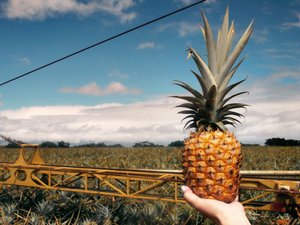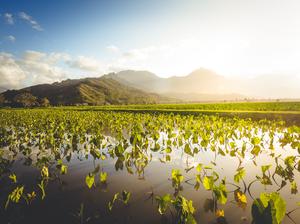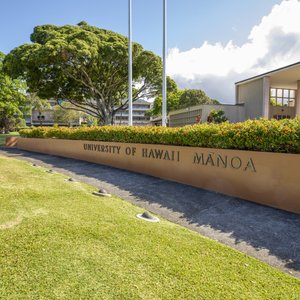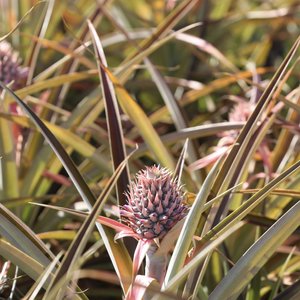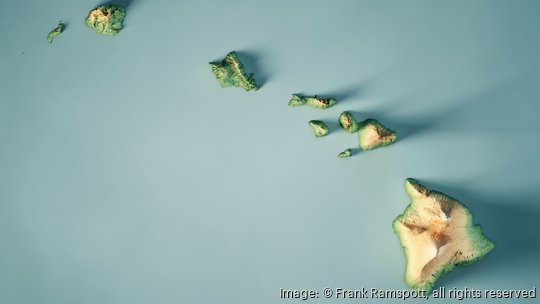
The Hawaii Food Hub Hui has a goal to triple the output of the state's food hubs by 2025, according to a statement from representatives of the hui.
“People think feeding tourists and locals are two different things, but not quite,” said Saleh Azizi, director of the Hawaii Food Hub Hui, in a written statement. “Hotel purchasing of locally produced food has in turn funded a lot of local food developments and made sure there is a local food industry to feed the local market.”
The Hawaii Food Hub Hui was established under the umbrella of the non-profit Hawaii Good Food Alliance in 2017, with the goal of helping food hubs set up sustainable business practices. The U.S. Department of Agriculture describes a food hub as centrally located facility that aggregates, stores, processes and markets locally produced food products, according to its website.
Currently, statewide food hubs support 1,337 farms and 14,465 customers, according to representatives of the hui.
Originally, the hui started with five food hubs as members. Today, it has 14 members: Farm Link Hawaii, Malama Kauai, Adaptations Inc., Kohala Food Hub, O.K. Farms and Hawaii Eco, Sustainable Molokai Mobile Market, Hawaii Ulu Cooperative, Kahumanu Food Hub & Organic Farms, Hoola Farms, Da Box CSA – The Food Basket, Local Harvest, LLC, Maui Hub, Roots Cultural Food Hub and Oahu Fresh.
Before becoming director of the hui, Azizi ran Kahumanu Food Hub & Organic Farms. He spoke with Pacific Business News earlier this month to share how food hubs can help solve the state's need for locally grown food.
Why are food hubs so important to increasing the production of locally grown food in Hawaii? One of the things we talk quite a lot about in Hawaii and that a lot of people are aware of is that we're 90% dependent on food from the outside. Another thing we agree on is that we really need to improve our food security — to have more local food production. But the 90% that we quite often don't talk about is 90% of all of our farmers and food producers are family farmers, and they're small farmers. Many of them, they don't have access to markets, and unless we provide that link between the farm and the consumer, that food will quite often go to waste. Many of these farmers are experiencing what we would call a broken food system, or exclusion, because over time, food distributors went to buy from large farms, which are mostly on the U.S. continent, and they're not our local farmers.
That's where food hubs make a big difference. ... We provide that link [for] our [small] local [farms]. ... Over time what we've seen with [the local farmers we work with] is that they've actually started investing in their farm. Now that they have a partner to work with to buy their food, they hire more people, they expand their farms, and they say that less food goes to waste.
The Hawaii Food Hub Hui has a goal to triple the output of Hawaii’s food hubs by 2025. Can you share more about this goal? One of the things that I have been doing as the director of the Food Hub Hui is ... ongoing needs assessment with the food hubs to see what they need in order to serve the community better, and in general that means to reach more farmers in their area and to reach more of the demand, whether it's direct to consumer or whether it's to the grocery stores. We found that if we were able to raise for our food hubs about $50 million over the next five years, that we ... as a collective ... could reduce our dependence on imports by 10% for all of Hawaii.
What would that $50 million fund? That's almost entirely equipment and construction. What the food hubs do is marketing for farmers, so they have these warehouses and properties where they aggregate the food. They wash the food. Sometimes they make products and processed foods. So the $50 million is entirely for equipment, for supplies and for construction and also for logistics. It does include delivery cars. There's a lot of refrigerators and freezers in that number. It's an expansion of what we would call our food systems assets that help us move food from production to consumption.
Why are food hubs especially important during natural disasters, such as the Lahaina fires? In general, I would say food hubs are really important because they reduce the need for the farmers to have all of those things that the food hubs have. ... Usually a food hub supports anywhere from 50 up to 300 farmers. They reduce the need for all those farmers to have their own vehicles, refrigeration, customers. ... A lot of the restaurants and stores in Lahaina used to buy from farmers and — at the same time — some farmers were affected where fire and heavy winds actually ruined their farms. Of course, tons of families were affected in terms of displacement. As all of this happened, there again became a huge need to get food to our people, and the food hubs are just very quick in organizing that support that's needed.
For more information about the Hawaii Food Hub Hui, go here.
